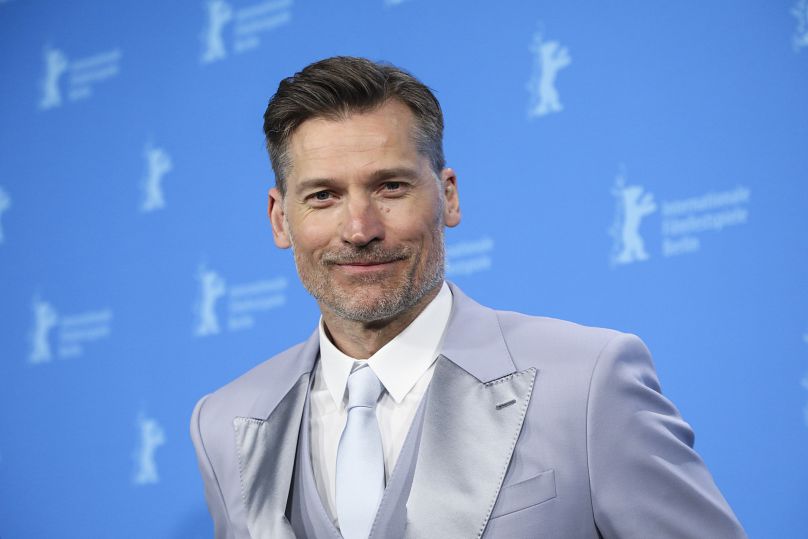"Think of this sweltering European summer as a memo from our future selves. It’s telling us rich countries will not get off scot-free—or even close to it," argues Danish actor Nikolaj Coster-Waldau
Europe’s record-smashing heatwave has given those of us who live in the global north a sobering look at what’s ahead.
 ADVERTISEMENT
ADVERTISEMENT
 ADVERTISEMENT
ADVERTISEMENT
It’s removed any basis for thinking that the climate crisis would only affect generations to come or "other" countries.
It’s shown us what much of the rest of the world already knows — that the climate crisis is a clear and present danger. To everybody.
It has played out at the same time as a heatwave in Iraq pushed temperatures over 50°C and several Iraqi cities became the hottest places on earth. And it follows on the heels of an unprecedented early spring heatwave in South Asia, which claimed at least 90 lives.
And these all-time highs are a mere teaser for what’s next if we fail to act; they represent just 1.1°C of warming above pre-industrial levels.
A business-as-usual path leads straight to 2.7°C by 2100.
To get a sense of what that might mean, even in these relatively lower levels of warming, we are watching the destruction of Greenland’s Ice Sheet in what feels like real-time.
Although I was born and raised in Denmark, I spend a lot of time in Greenland. It’s where my wife Nukâka is from, and we visit frequently.
I’ve seen with my own eyes how the landscape is changing. In recent years that trend has been on fast-forward.
Danish researchers say the Greenland Ice Sheet has lost about 4,700 billion tonnes of ice since 2002. The Arctic is warming faster than anywhere else on earth, and it’s already contributed to a 1.2-centimetre sea rise. The potential global destruction that a warming Greenland represents is enormous.
Contrary to its name, the result of an optimistic marketing campaign to attract settlers, Greenland is mostly covered in ice. If it all melted, it would raise sea levels by more than seven metres. A scenario too damaging, too horrifying, to contemplate.
Recent IPCC reports have been growing more forceful in their calls for urgent action on climate change. More than three billion people already live in highly vulnerable areas. And despite the changes we’ve already made, we are seeing widespread, potentially catastrophic loss of species and damage to nature.
We in the north are beginning to know what this truly feels like. The war in Ukraine has placed an extra layer of complexity onto this Rubik’s cube of climate, economic, and political volitivity. The world economy is in shock, pummeled by rising food, fuel and fertilizer prices.
Recent climate talks in Bonn left many disappointed because they didn’t gain any ground on the most important issues of mitigation, adaption and how to pay for our climate responses.
But while there is no time to lose, it’s equally true that there are plenty of reasons to be hopeful; the Paris Agreement points the way forward.
Current commitments, the Nationally Determined Contributions (NDCs), that countries have made under the agreement will increase emissions by almost 14% this decade when the science dictates that we should be reducing emissions by 45%.
This might sound bad, but still, we are headed in the right direction. The NDCs were always meant to be a ‘moveable feast’—becoming more refined and ambitious with every year. And that process is working.
At the COP26 climate summit in Glasgow last year, NDCs put the world on a 2.5C pathway. Not great, but still better than 3.5C we aimed for in 2015.
There are more signs of hope. We are seeing the NDCs becoming more than just a pro-forma document, but a tool for defining and advancing sustainable development.
It’s encouraging to know that they have strong political buy-in at the highest levels of government. And increasingly, they are bringing together all facets of society to create meaningful change in important areas such as land use and green energy. There is special attention being paid to the needs of women, Indigenous peoples, young people and other vulnerable groups, who are on the frontlines of the climate emergency.
Our next big milestone for decisive climate action is COP27, which is being held in Sharm El-Sheik, Egypt in November.
We hope for and demand decisive and meaningful commitments from our leaders. Because if this year has taught us anything, it’s that we desperately need international cooperation to tackle the biggest challenge humanity has ever faced.
Think of this sweltering European summer as a memo from our future selves. It’s telling us rich countries will not get off scot-free—or even close to it. Climate change simply doesn’t care where in the world you live.
The accelerated melting of the Greenland Ice Sheet has direct consequences for the northern Inuit people. They are special forces of humankind who will adapt to and survive in the landscape that is central to their identity and culture, as they have done for centuries.
It’s the rest of us who are in trouble. We’ve lost our connection to nature, and we’re hubristic enough to believe that we can manufacture our way out of every crisis—that ‘growth’ is the way. That ‘more’ is always the solution. In my line of work, acting, there is a rule when it comes to what has the biggest impact: “Less is more”.
Listen to nature and hear what it’s saying.
Nikolaj Coster-Waldau is a Danish actor and goodwill ambassador for the United Nations Development Programme.











